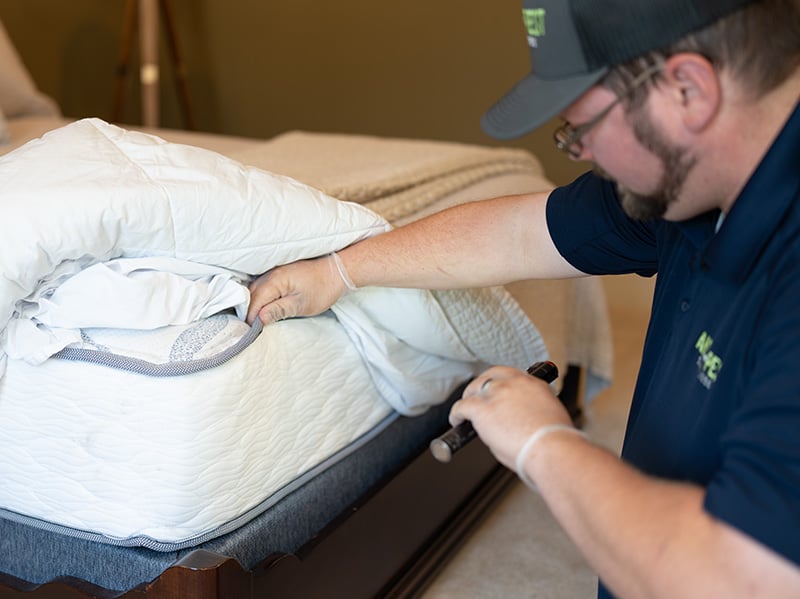When it comes to maintaining a pristine environment in the hospitality industry, understanding what is integrated pest management in hotels becomes essential. This concept not only involves keeping the premises free from pests but also ensuring that the methods used are sustainable and effective. In the competitive world of hotels, where guest satisfaction is paramount, employing a robust pest management strategy is crucial.
Integrated Pest Management (IPM) is a holistic approach that combines various practices to manage pest populations effectively, economically, and with minimal impact on the environment. For hotels, it means creating a welcoming and safe experience for guests while safeguarding the establishment's reputation. With rising expectations from travelers, hotels must adopt proactive pest management strategies to maintain their standards.

The Core Principles of IPM
IPM is not just about using pesticides. Its about understanding the pest's life cycle and behavior to manage them efficiently. This approach involves regular monitoring, identifying pests accurately, and deciding whether management action is needed. The goal is to use the least hazardous methods, prioritizing non-chemical strategies whenever possible.
Prevention is Better Than Cure
In the realm of hotels, prevention is key. By implementing structural maintenance and sanitation practices, hotels can significantly reduce the chances of pest infestations. Regular inspections and sealing potential entry points can go a long way in keeping pests at bay. It's about being proactive rather than reactive.
Monitoring and Identification
Monitoring is a critical component of IPM. By using traps and visual inspections, hotels can assess pest levels and take action before the problem escalates. Proper identification ensures that the right methods are used for control, reducing unnecessary pesticide use and promoting a safer environment for guests and staff.
The Benefits of IPM in Hotels
Implementing an IPM strategy in hotels offers numerous benefits. Not only does it protect the establishment's reputation, but it also enhances guest satisfaction by ensuring a pest-free environment. Moreover, it contributes to environmental sustainability by reducing reliance on chemical pesticides.
Cost-Effectiveness
While the initial setup of an IPM program may seem costly, it is cost-effective in the long run. By preventing infestations, hotels save on expensive treatments and potential loss of business due to negative reviews. An effective IPM program helps maintain a healthy bottom line.
Environmental and Health Benefits
By minimizing pesticide use, IPM reduces the risk of chemical exposure to guests and staff. This approach aligns with the growing trend of eco-friendly practices in the hospitality industry, appealing to environmentally conscious travelers.
Implementing IPM in Your Hotel
To implement an IPM program, hotel management must first conduct a thorough pest risk assessment. This involves identifying potential problem areas and developing a customized plan tailored to the hotel's specific needs.
Staff Training and Involvement
Training staff on IPM principles is crucial. Employees should be aware of the signs of pest activity and understand the importance of maintaining cleanliness and reporting issues promptly. A team effort ensures the success of the IPM program.
Regular Evaluation and Adjustment
IPM is an ongoing process. Regularly evaluating the effectiveness of the program and making necessary adjustments is essential. By staying informed about the latest pest management techniques, hotels can continuously improve their IPM strategies.
For more insights on maintaining pest-free environments in hotels, consider exploring resources like Pest Control in the Hotel Industry.

FAQ
Why is IPM important in hotels?
IPM is crucial in hotels to ensure a safe and comfortable environment for guests, protecting the hotel's reputation and minimizing health risks associated with pests.
How does IPM differ from traditional pest control?
Unlike traditional pest control, which often relies heavily on chemical pesticides, IPM focuses on a combination of strategies, prioritizing prevention, monitoring, and using the least hazardous methods.
Can IPM be customized for different hotel environments?
Yes, IPM programs can be tailored to meet the unique needs of each hotel, considering factors such as location, building design, and the specific types of pests prevalent in the area.
